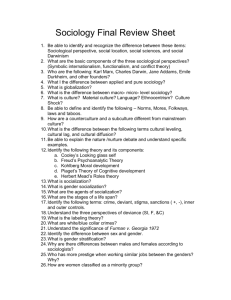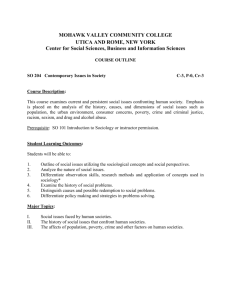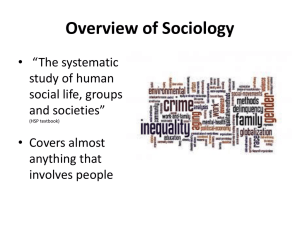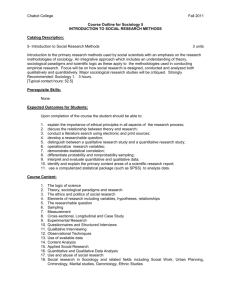Unit 1 Culture and Social Structure Sociology (2)
advertisement
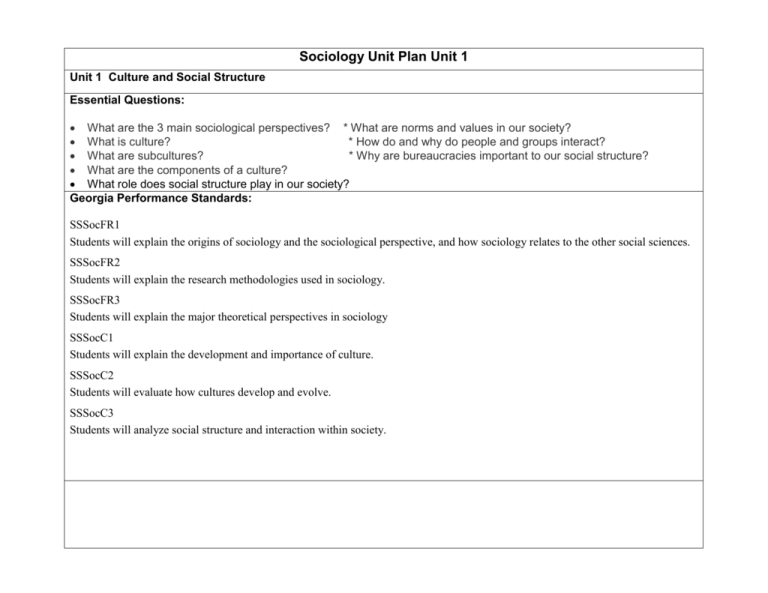
Sociology Unit Plan Unit 1 Unit 1 Culture and Social Structure Essential Questions: What are the 3 main sociological perspectives? * What are norms and values in our society? What is culture? * How do and why do people and groups interact? What are subcultures? * Why are bureaucracies important to our social structure? What are the components of a culture? What role does social structure play in our society? Georgia Performance Standards: SSSocFR1 Students will explain the origins of sociology and the sociological perspective, and how sociology relates to the other social sciences. SSSocFR2 Students will explain the research methodologies used in sociology. SSSocFR3 Students will explain the major theoretical perspectives in sociology SSSocC1 Students will explain the development and importance of culture. SSSocC2 Students will evaluate how cultures develop and evolve. SSSocC3 Students will analyze social structure and interaction within society. Common Core Standards: Craft and Structure CCSS.ELA-Literacy.RH.9-10.4 Determine the meaning of words and phrases as they are used in a text, including vocabulary describing political, social, or economic aspects of history/social science. CCSS.ELA-Literacy.RH.9-10.5 Analyze how a text uses structure to emphasize key points or advance an explanation or analysis. Integration of Knowledge and Ideas CCSS.ELA-Literacy.RH.11-12.7 Integrate and evaluate multiple sources of information presented in diverse formats and media (e.g., visually, quantitatively, as well as in words) in order to address a question or solve a problem. Essential Vocabulary from Sociology The Study of Human Relationships: Chapters 1-4 social sciences function function culture cultural diversity sociology interactions theory latent function Components of culture cultural universal sociological perspective sociological imagination Psychology functionalist perspective dysfunctional manifest function Material/nonmaterial culture values ethnocentrism achieved status interactionism perspective symbols symbolic interaction norms social structure Social psychology Comte Spencer Durkheim Marx ascribed status role conflict role strain groups primary and folkways mores roles societies preindustrial societies bureaucracy levels of bureaucracy Conflict perspective counter culture secondary groups postindustrial societies industrial societies barter service industries French Revolution Industrial Revolution Common Formative Assessment: Create a research study Culture research and poster Solving problems by using the perspectives Personal Space Observation Role Playing Test Prep/Review: Review sheet for Chapter 1 Review of founders and sociological perspectives Summative Assessment: Chapter 1 Intro. to Sociology Test and Chapter 2 Culture Quiz Chapter 4 Test Social Structure

